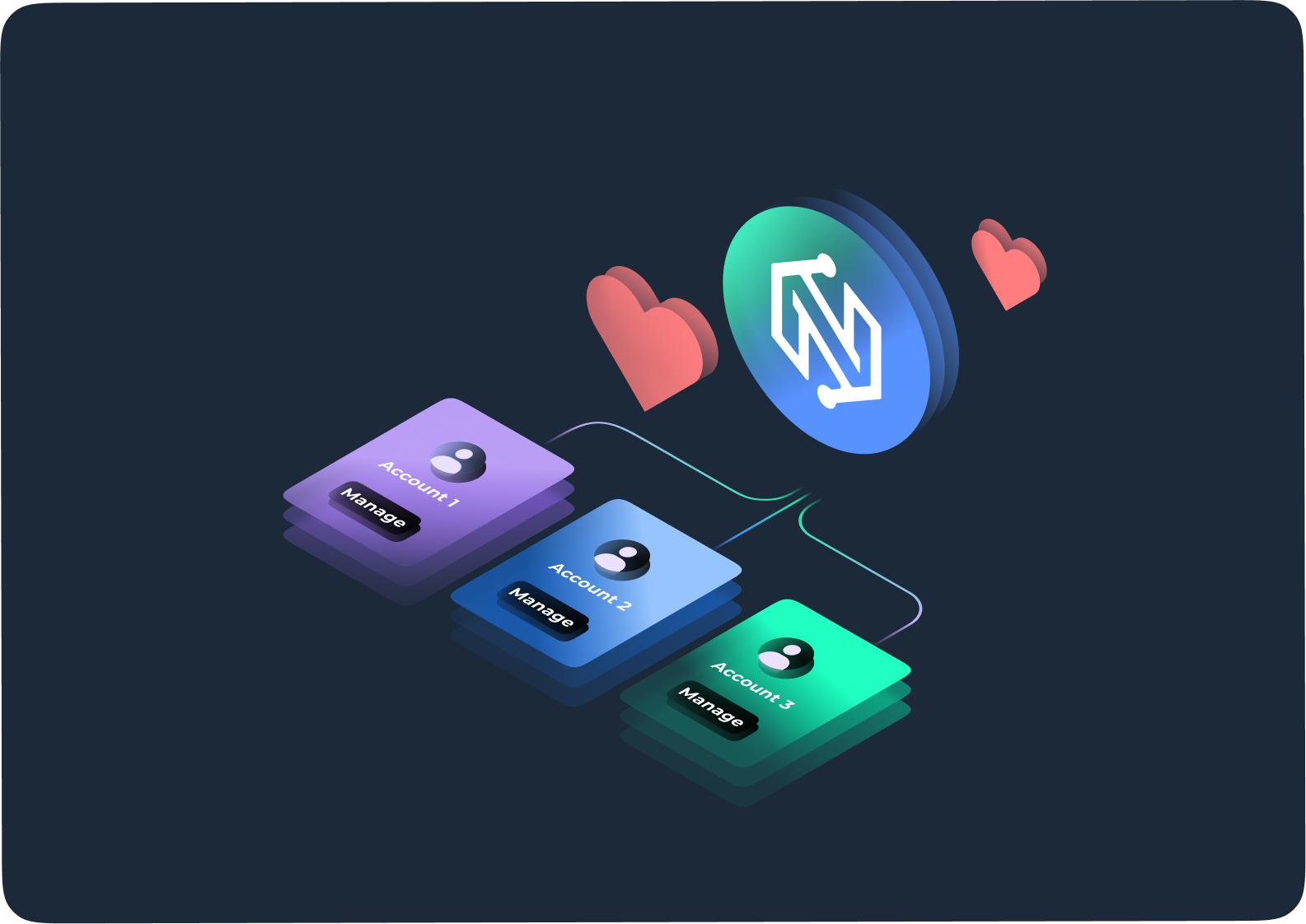In 2025, our lives without a stable internet connection would be impossible.
Fun fact about internet users: 5.52 billion people use the internet every day, which is equivalent to the 67.5% of world’s population.
With such a massive online presence, maintaining privacy, security, and efficiency has become more important than ever, and proxies have become an essential tool for individuals and businesses to navigate this complex digital landscape.
Two popular proxy types often debated are ISP proxies and residential proxies. While both serve similar purposes, their underlying differences make them better suited for specific use cases.
In this article, we’ll break down ISP and residential proxies, explore their key differences, and help you determine the best proxy type for your needs.
Understanding Residential Proxies
Residential proxies are IP addresses assigned to real devices – smartphones, laptops, or desktop computers – by internet service providers (ISPs).
These proxies use IPs tied to physical locations, making them nearly indistinguishable from legitimate users.
Residential proxies provide a high level of trust and legitimacy since websites recognize them as authentic user traffic.
They’re commonly used in activities that require undetectable browsing, such as ad verification, e-commerce monitoring, and social media management.
Understanding ISP Proxies
ISP proxies, also known as static residential proxies, are IP addresses registered with internet service providers but hosted on servers rather than real devices. This unique setup combines the speed and reliability of datacenter proxies with the legitimacy of residential IPs.
While ISP proxies provide consistent IPs and faster speeds, they lack the diversity and natural distribution of residential proxies. This makes them more prone to detection on websites with advanced anti-bot systems.
ISP proxies are often used for tasks that require high-speed, uninterrupted connections, such as sneaker copping or ticket purchasing. However, their limited diversity and detectability can pose challenges for more complex use cases.
ISP vs Residential Proxies: Key Differences
Both ISP and residential proxies offer unique advantages, but their differences significantly impact their effectiveness in specific scenarios.
Let’s look at the most important factors:
Anonymity and Detection
Residential proxies offer unmatched anonymity due to their association with real devices and locations. Detection systems view them as genuine user traffic, reducing the likelihood of bans.
ISP proxies, while registered under ISPs, are hosted on servers, making them easier to detect in highly protected environments.
Speed and Stability
ISP proxies deliver consistent speeds and uptime, as they are hosted on dedicated servers with robust infrastructure.
Residential proxies, while slower, offer sufficient speed for most tasks and gain an edge in environments where trust and authenticity are more critical than speed.
For large-scale data scraping or tasks needing uninterrupted connections, ISP proxies may seem appealing. However, the marginally slower speeds of residential proxies are a small trade-off for their reliability in undetectable operations.
Cost Considerations
Residential proxies are generally more expensive due to their sourcing complexity and higher demand in sensitive industries.
ISP proxies are a more budget-friendly alternative, especially for users who prioritize speed over anonymity.
Use Cases for ISP vs Residential Proxies
Both proxy types excel in specific scenarios, but choosing the right one depends on your goals and the level of anonymity required.
When to Choose Residential Proxies
- Social media management: Residential proxies are ideal for managing multiple accounts on platforms like Facebook and Instagram, where detection systems are highly advanced.
- E-commerce monitoring: Gain accurate insights into pricing and competitor strategies without risking bans.
- Ad verification: Make sure your ad campaigns are displayed correctly across various regions.
- Localized access: Access geo-restricted content or test localized apps and websites with high success rates.
- Web scraping: For complex data collection tasks, residential proxies provide the trust and authenticity needed to avoid detection.
When to Choose ISP Proxies
- Sneaker copping: ISP proxies’ fast speeds make them suitable for securing limited-edition drops.
- Ticket purchasing: Beat high demand and purchase tickets efficiently with consistent, stable connections.
- Streaming services: ISP proxies can bypass geo-restrictions on platforms like Netflix while maintaining fast speeds.
Pros and Cons of ISP vs Residential Proxies
Both ISP and residential proxies come with unique advantages and limitations. Choosing the right type depends on your specific needs, level of anonymity required, and the tasks at hand. Here’s a detailed breakdown to help you decide.
Residential Proxies
Pros:
- High anonymity and trustworthiness: Residential proxies are sourced from real devices, making them appear as genuine user traffic to websites. This significantly reduces the risk of detection and bans.
- Extensive location targeting options: With residential proxies, you can target specific cities, regions, or even ISPs, making them ideal for localized tasks such as ad verification and regional market research.
- Effective for sensitive, high-stakes activities: Industries like e-commerce, social media management, and data scraping often rely on residential proxies for their superior reliability and ability to bypass strict detection systems.
Cons:
- Higher cost: Due to their sourcing process and high demand, residential proxies are typically more expensive than ISP proxies. However, their reliability often justifies the added expense.
- Slightly slower speeds: Residential proxies depend on end-user connections, which can sometimes result in slower speeds compared to server-hosted alternatives. For most tasks, this difference is negligible, but it may be a consideration for high-speed operations.
ISP Proxies
Pros:
- Fast and reliable connections: ISP proxies are hosted on servers, providing consistent speeds and low latency, making them suitable for tasks like streaming, ticket purchasing, and sneaker copping.
- Cost-effective for certain tasks: ISP proxies are often more affordable than residential proxies, especially for users prioritizing speed over undetectability.
- Ideal for activities requiring static IPs: With no rotation, ISP proxies provide a consistent identity, which is essential for tasks like managing single accounts or accessing platforms with strict IP requirements.
Cons:
- Easier to detect in advanced environments: While ISP proxies are registered under ISPs, they are hosted on servers, making them more prone to detection on websites with sophisticated anti-bot systems.
- Limited IP diversity and subnets: ISP proxies lack the large pool of unique IPs offered by residential proxies, reducing their effectiveness for tasks requiring high IP diversity, such as web scraping or account creation.
By weighing these pros and cons, it becomes clear that residential proxies are the go-to option for businesses and individuals needing high anonymity, diverse IP options, and undetectable operations.
ISP proxies, while cost-effective and fast, are better suited for less sensitive or high-speed tasks. Understanding your specific needs and use cases is key to making the right choice.
Residential Proxies with NodeMaven for the Win
NodeMaven offers premium residential proxies made specifically for businesses and individuals seeking reliable, undetectable solutions. With our extensive pool of over 30 million quality IPs, we will see through that your operations run smoothly and securely.
Why Choose NodeMaven?
- Unparalleled anonymity: Our rotating residential proxies let your activities remain undetectable.
- Wide coverage: Access proxies in locations worldwide for maximum flexibility.
- Scalable solutions: Whether you’re a small business or a large enterprise, our plans cater to your needs.
- 24/7 support: Our dedicated team is here to assist you every step of the way.
- High success rates: With NodeMaven, enjoy consistent performance across all your online activities.
Ready to elevate your operations with the power of residential proxies? Explore NodeMaven’s solutions today and experience the difference!


